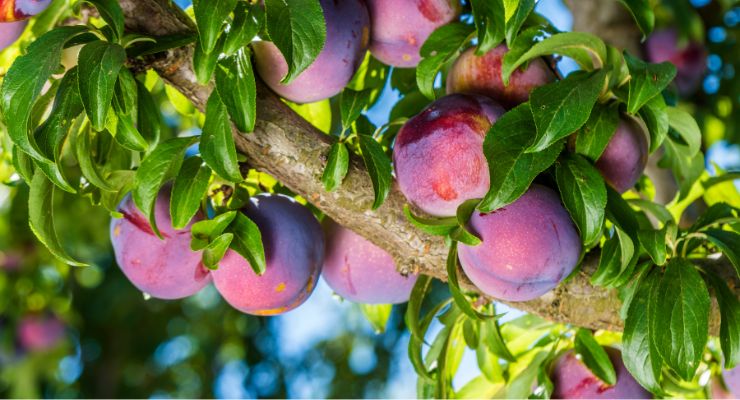07.21.23
After three years of research and development, Cepham has introduced a patent-pending hydro-ethanolic extraction method in order to bring its new Prunus domestica bark extract to market. The new ingredient is formulated to support prostate health, and its production helps to contribute to environmental conservation, the company notes.
The company has sought out an alternative to Pygeum africanum, better known as the African cherry tree, which is used in extract form in prostate support supplements. Prunus domestica, commonly known as plum trees, emerged as a promising candidate due to its phytochemical composition.
“Laboratory analyses of Prunus domestica bark revealed potent antioxidant phytochemicals such as xanthones and stilbenes, making it an ideal candidate for prostate health support,” said Anand Swaroop, PhD, founder and president of Cepham. “Our commitment to sustainability led us to address the environmental impact of plum tree pruning in Himachal Pradesh, India, near to our manufacturing operations base in Chandigarh.”
Farmers in Himachal Pradesh traditionally burned prune twigs during pruning, contributing to significant air pollution. Recognizing the potential to transform this waste into a valuable resource, Cepham developed a patented extraction technology to upcycle the pruning waste and create Prosprune.
"We continue to work closely with local communities and farmers in Himachal Pradesh to ensure responsible and sustainable harvesting of prune twigs for Prosprune,” said Swaroop. “Our dedication to finding innovative ways to drive environmental sustainability through upcycling of crop residues remains unwavering as does our dedication to men’s health by offering a sustainable alternative that supports prostate health and addresses the dwindling supplies of endangered species."
As a finished product, Prosprune is 98.5% similar to Pygeum africanum extract, according to the company. It has undergone safety studies and human clinical trials, and may be efficacious in supporting improved sleep through the reduction of night-time urination, reduced inflammaotin and improved urine flow, an increase in total testosterone, strength and stamina, clearer skin, and a reduction in hair loss, according to the company.
Cepham is also taking part in a project to create an herbal tea blend using prune twigs, expanding the range of sustainable products derived from the Prunus domestica plant.
The company has sought out an alternative to Pygeum africanum, better known as the African cherry tree, which is used in extract form in prostate support supplements. Prunus domestica, commonly known as plum trees, emerged as a promising candidate due to its phytochemical composition.
“Laboratory analyses of Prunus domestica bark revealed potent antioxidant phytochemicals such as xanthones and stilbenes, making it an ideal candidate for prostate health support,” said Anand Swaroop, PhD, founder and president of Cepham. “Our commitment to sustainability led us to address the environmental impact of plum tree pruning in Himachal Pradesh, India, near to our manufacturing operations base in Chandigarh.”
Farmers in Himachal Pradesh traditionally burned prune twigs during pruning, contributing to significant air pollution. Recognizing the potential to transform this waste into a valuable resource, Cepham developed a patented extraction technology to upcycle the pruning waste and create Prosprune.
"We continue to work closely with local communities and farmers in Himachal Pradesh to ensure responsible and sustainable harvesting of prune twigs for Prosprune,” said Swaroop. “Our dedication to finding innovative ways to drive environmental sustainability through upcycling of crop residues remains unwavering as does our dedication to men’s health by offering a sustainable alternative that supports prostate health and addresses the dwindling supplies of endangered species."
As a finished product, Prosprune is 98.5% similar to Pygeum africanum extract, according to the company. It has undergone safety studies and human clinical trials, and may be efficacious in supporting improved sleep through the reduction of night-time urination, reduced inflammaotin and improved urine flow, an increase in total testosterone, strength and stamina, clearer skin, and a reduction in hair loss, according to the company.
Cepham is also taking part in a project to create an herbal tea blend using prune twigs, expanding the range of sustainable products derived from the Prunus domestica plant.




























